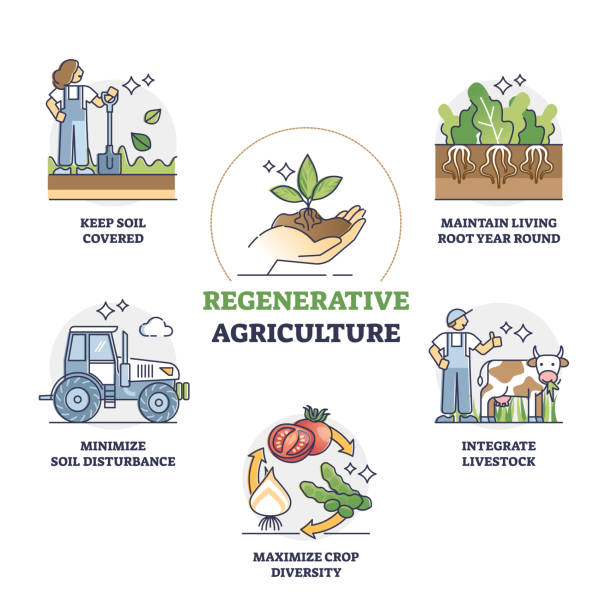Plant Science
& Sustainable Agriculture
One of the world’s most advanced scientific research facilities was completed in 2022, as part of HudsonAlpha’s Center for Plant Science and Sustainable Agriculture. The Center integrates state-of-the-art soil sterilization, environmentally controlled seed vaults and molecular labs with mission-driven greenhouses equipped to create monitored micro-climates, all under one roof.
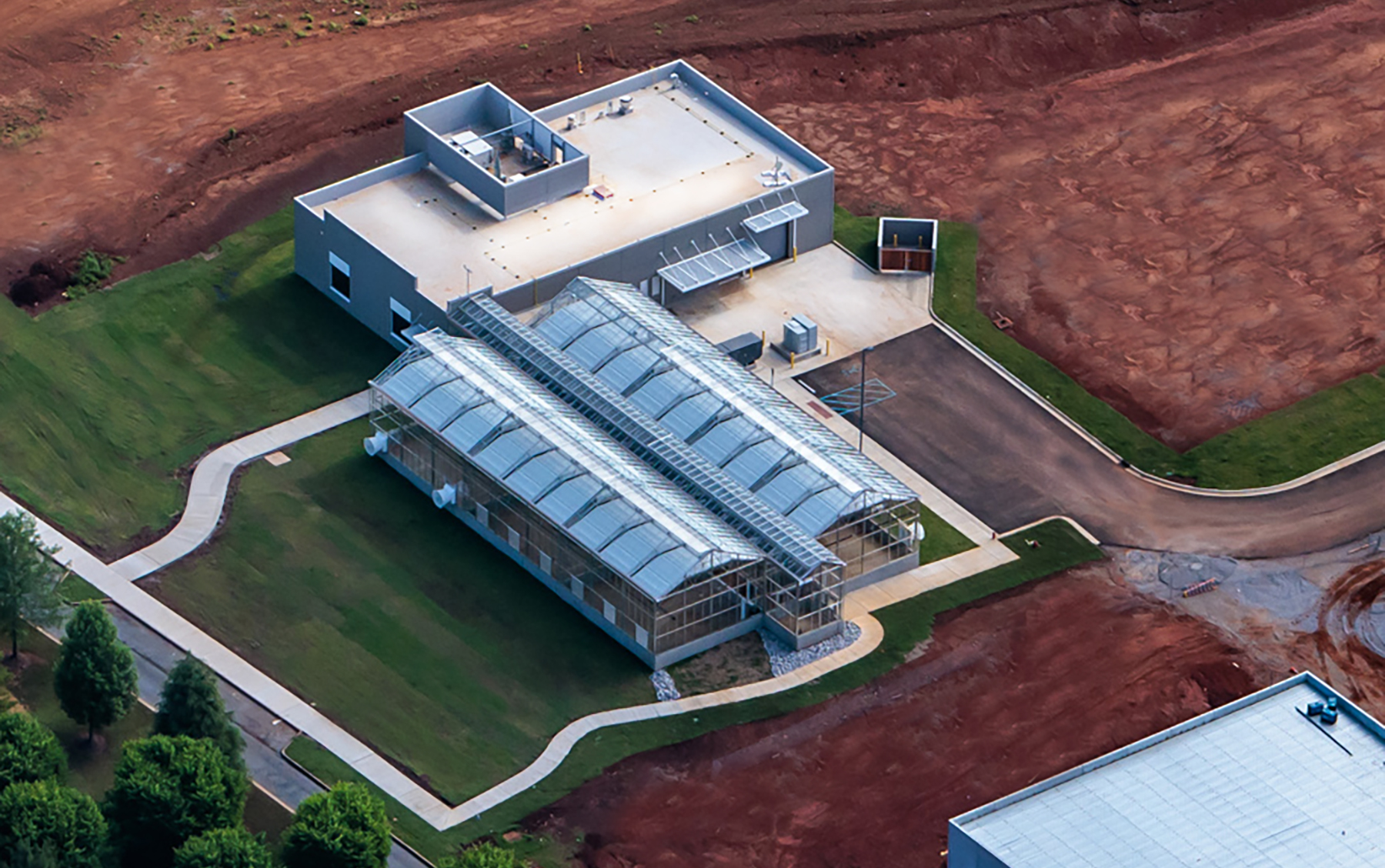
Next to it, is a 2-acre research field, where scientists plant adapted plant species in real-world conditions to complement and complete their research. This takes the purposeful application of plant science to another level, with the added power of genomics. A demonstration and teaching garden will be in front of the greenhouse for Education Outreach to the community and visitors.
The EKTA Foundation is proud to partner with HudsonAlpha by funding the Center’s Biodiversity Greenhouse and the Garden Learning Center.
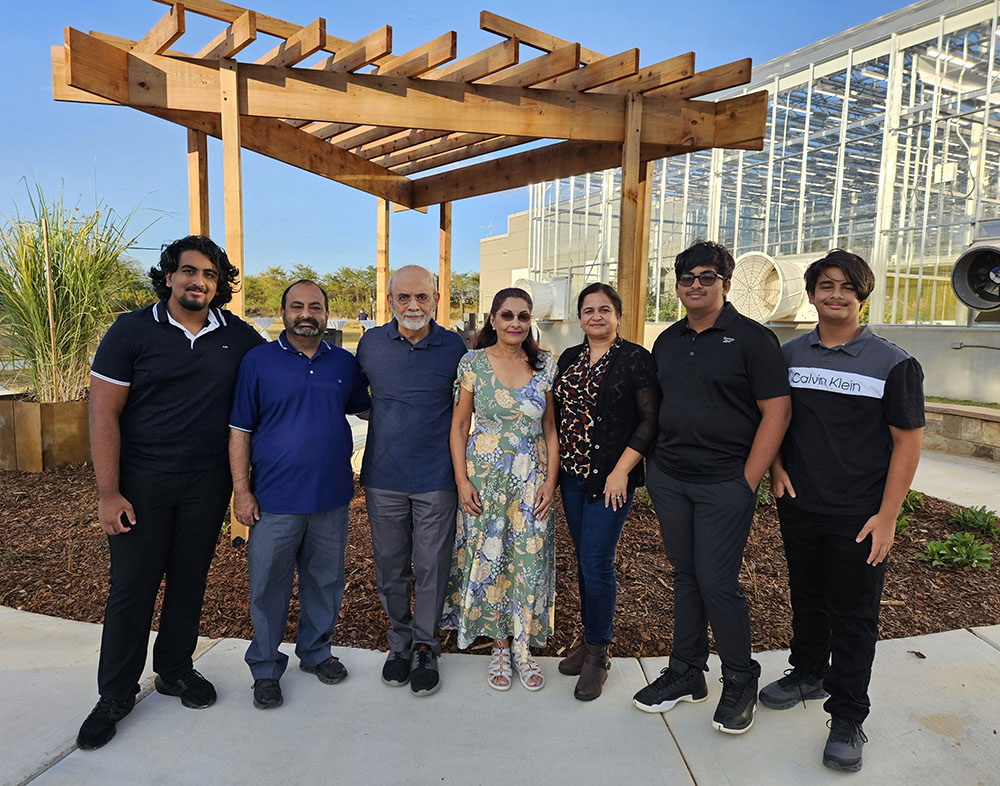
Three generations of the Mahbubani Family at the Center
Studying nature at her best, with added insights and intelligence from plant genome analysis, HudsonAlpha’s collaborative, cross-functional team accelerates the pipeline to new and improved plants in the field that will:
- require fewer inputs like fertilizer, pesticides, and water,
- resist common pests that threaten their survival, and
- thrive on marginal lands under varied soil conditions.
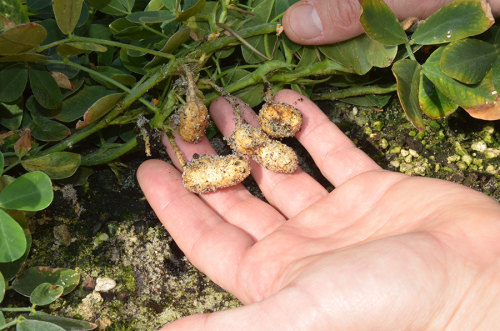
Another team of researchers at the Center is using genomics to study perennial grasses like miscanthus and switchgrass to improve their biomass for production of cost-effective biofuels and building material bioproducts, creating a green, circular bioeconomy.

Environmental Innovation at its best and EKTA is proud to be part of it.
Soil Science
& Regenerative Agriculture
Soil is the lifeblood of the earth, teeming with nutrients and organisms that enable crops and plants to grow and thrive in naturally recurring cycles of abundance. The use of chemical fertilizers & pesticides combined with mechanized agriculture and land deforestation for development, fuel & timber have degraded this precious gift of life on earth.
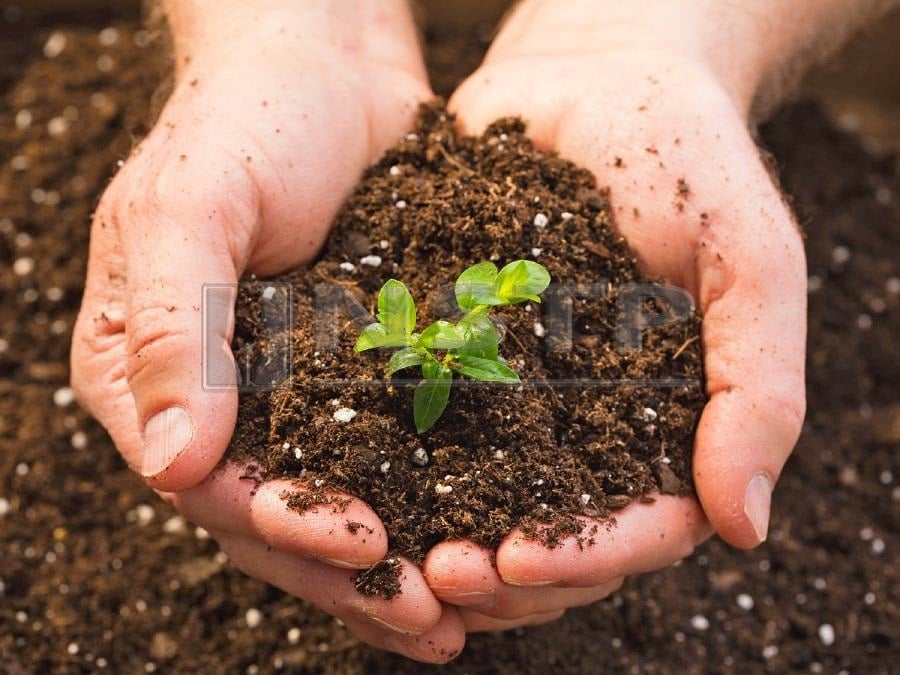
Impact is evenly spread across the world with over half of arable agricultural land severely depleted and eroded. If soil degradation continues unabated, the outcome could well be the loss of centuries of natural soil enrichment. With purposeful, timely action it could be reversed.
.jpg)
This 2021 video makes the foundational case for Soil Science and Regenerative Agriculture. It presents an urgent call to action, using data on soil degradation from 2015! Soil conditions have continued to deteriorate since then.
The EKTA Foundation is partnering with activists and agriculturists who share our sense of urgency and passion for restoring soil to its natural microbial-and-nutrient-rich state through a sustained commitment to the ecological principles of Regenerative Agriculture.
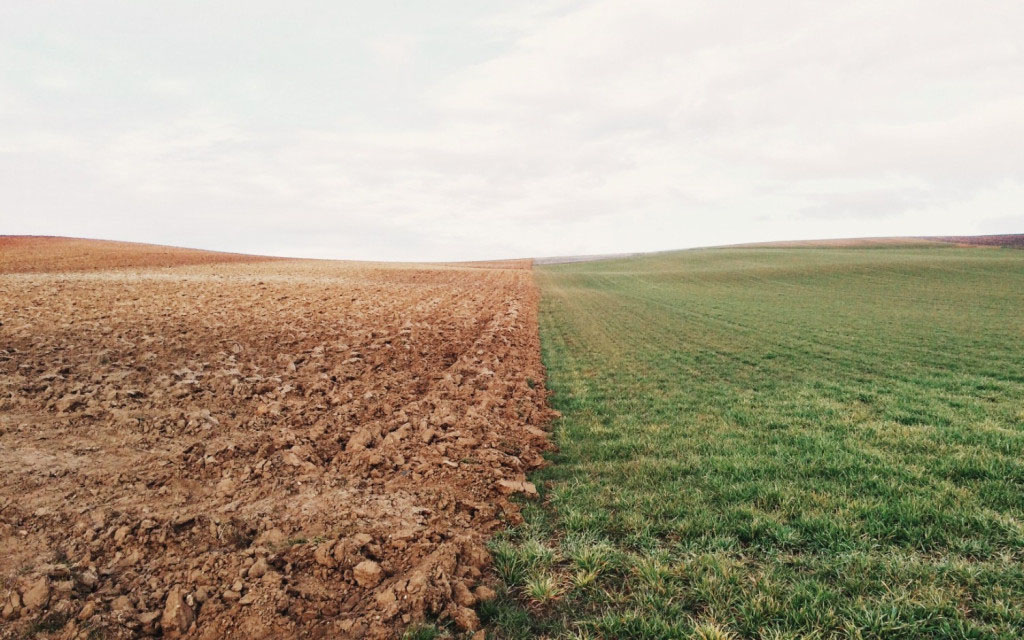
Environmental Innovation via Soil Science & Regenerative Agriculture
Regenerative Agriculture has started to gain traction across the US and the world. Soil Science is evolving to provide validated datasets for products and services that will drive the transition. We’re excited about the long-term generational impact on the environment of our planet and the well-being of its inhabitants.
